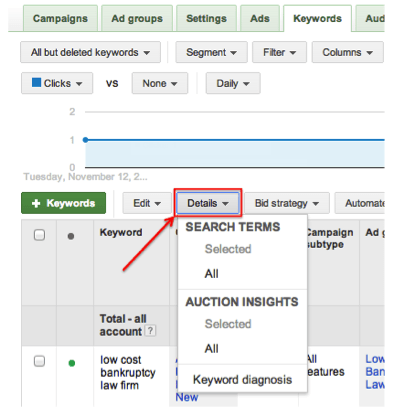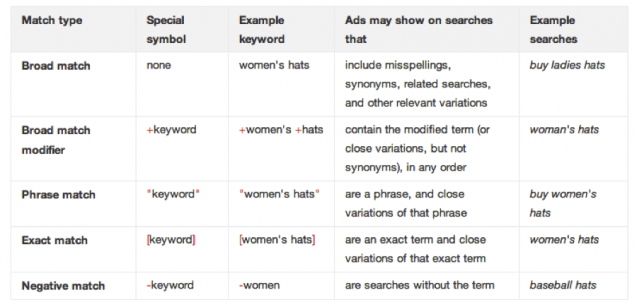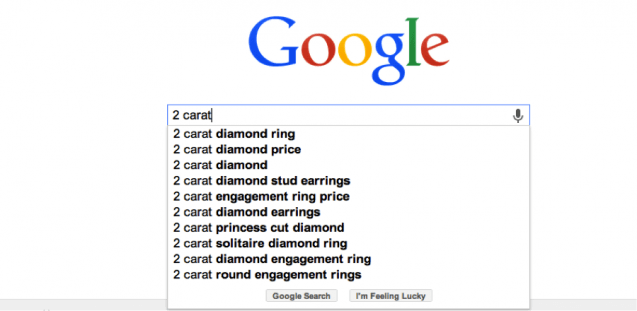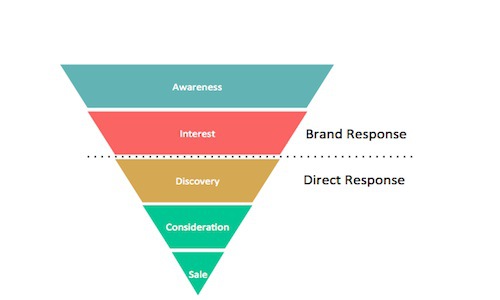Not all companies can spend $200 or more a day on paid search. Many smaller firms simply don’t have that level of cash-flow to dish out, regardless of the return on investment. Because of this, managing a smaller paid search campaign becomes even more critical than ever before. Manish wrote a great post on steps to managing smaller PPC campaigns, but let’s go big picture.
While managing PPC campaigns for over 5 years, we’ve learned two incredibly important rules that have saved companies money. The first is to apply the traditional marketing funnel during the creation and execution of those campaigns. The second is to apply the laws of probabilities to create and manage paid search campaigns.
Use The Marketing Funnel
There are smaller and even larger companies that spend $50 per day but will advertise on a flurry of keyword phrases that are 3 words or less in keyword count. Take for example a diamond ring jeweler. By advertising on the keyword phrase “diamond rings”, one could be targeting people in different mind frames:
- Browsing for diamond rings
- Would like to buy one…some day
- Offering diamond ring advice to a friend
- Interested in learning more about diamond rings
Now that is where negative keywords come in. Negative keywords allow advertisers to ensure their Ads are not receiving impressions on keywords that are not critical to the purchasing cycle of the advertiser (i.e. diamond ring pictures, diamond ring colors).
If the goal for a smaller company is to increase brand awareness, then targeting more general keywords that are still related to your service or product tends to be a reasonable strategy. However if that company is concerned about direct response marketing and ROI, targeting keyword phrases that are likely to hit at the discovery, consideration, and purchase stages of the marketing funnel will yield better results. That is where the laws of probabilities come into play.
Probabilities For PPC Budgets
We live in a world of probability and numbers. In the world of marketing and sales, this tends to be truer. Yet we create marketing campaigns that are too general and thus unable to get the most out of our paid search budgets. Coupling the principles of the marketing funnel and thinking about our paid search campaigns in terms of probabilities tends to be another fruitful process.
Referring back to our diamond ring example, if the phrases “diamond ring” and “2 carat diamond ring” both generate 1,000 clicks to your website, which one would likely convert faster? We’ve seen this with companies that take the time to think about how targeted their campaigns are. Those companies are going more directly after those shoppers who tend to know what sort of diamond ring they’re looking for. Targeting “2 carat diamond ring” also has a tendency to have less competition and thus will cost the advertiser less.
Thus you are receiving two benefits. First, there is a higher probability the advertiser will sell more product on “2 carat diamond ring” versus “diamond ring.” And the cost for the keyword “2 carat diamond ring” will likely cost less than the phrase “diamond ring.” We’ve seen companies save up to 30% by creating an entire campaign that targets keywords with 3 words or more in the keyword phrase count.
Defy Google’s Recommendation…Go Narrow To Broad
Google in the past has told advertisers to go as broad as possible when creating their campaigns. The reason is fairly evident…. Google makes more money when more Ads show appear and thus more searchers click on those Ads. But that advice has also negatively impacted businesses that weren’t achieving the desired ROI on their marketing spend and decided to turn off broad match. In turn, Google has created a hybrid known as Broad Match Modifier.
But Wait….What about missed keyword opportunities?
Yes, advertisers may miss out on some of those keywords that one can find in the keyword details report. But lets apply the laws of probability again. What are the chances of capturing the right customers on a well thought out campaign versus missing out on a few keywords that turn into conversions? The probability of the former is probably greater than the latter. The good news is when the campaign begins to produce favorable results, the company can increase their PPC budget and possibly expand to keywords that touch at the top of the marketing funnel.

Screenshot taken 11/11/2013 of http://adwords.google.com
When creating a campaign for smaller budgets of $200 or less, advertisers can institute these principles:
Target keywords that are 3 or more in length
The only time one should focus on 2 keywords is when they know that the contextual nature of the search warrants 2 words and are likely buyers. For example, someone typing in “litigation attorney” is likely looking for a litigation attorney now or in the near future versus simply browsing and not seriously considering one.
Use Broad Match Modifier, Phrase Match, And Exact Match
Leave out broad match for now. If you are working with a small budget, you don’t have the time nor cash-flow to experiment on broad match. And don’t forget to use negative keyword match. Coupling 3 words or more with these three match types can save companies at least 10% – 30% in advertising spend.

Screenshot taken 11/11/2013 of https://support.google.com/adwords/answer/2497836?hl=en
Take Your Time Building The PPC Campaign
This is where advertisers will save the most money and potentially produce the highest ROI for the company. The creation of the campaign takes consultation and patience. Try to stray away from creating campaigns in 1 hour…if that’s still possible outside of Google Adwords Express. If you’re spending less than 4 hours creating a campaign, you’re likely missing something. Even if you have to launch a portion of the campaign one day and other parts of it other days, that is a better approach than speeding through the process and launching the campaign all at once.
Go To Tools For PPC Keyword Research
Some of our favorite tools for building well thought out campaigns include:
- Wordsteam
- UberSuggest
- SEMRush
- Google Keyword Planner
- Google Trends
- EXCEL spreadsheet
Another tool that is more of a tactic is typing in your keywords in Google’s search bar and not hitting enter. This should give you more ideas on what searchers are looking for. But, the very best approach to building well thought out and highly targeted campaigns is simply sitting down with the company and asking questions on the buying behavior and search intent of their customers. As the campaign begins to gather data overtime, you’ll be able to leverage aspects of the keyword detail report to discover precisely what keyword phrases searchers are entering.

Screenshot taken 11/11/2013 of https://google.com
When building out pay-per-click campaigns (especially for smaller budgets), keep the marketing funnel in mind and remember paid search is a numbers and probabilities game. Companies with smaller budgets are just as important as those with larger budgets. They deserve the same thought and attention. Using these principles has a tendency to save companies more money and even produce greater returns over the long haul.
Featured Image Credit: Screenshot taken 11/11/2013





![AI Overviews: We Reverse-Engineered Them So You Don't Have To [+ What You Need To Do Next]](https://www.searchenginejournal.com/wp-content/uploads/2025/04/sidebar1x-455.png)